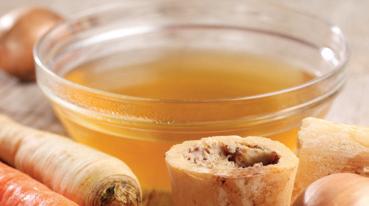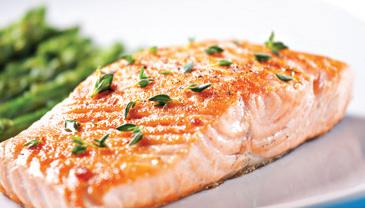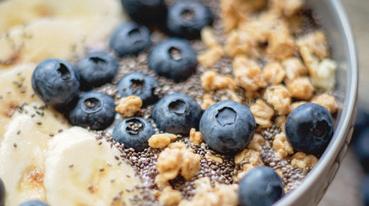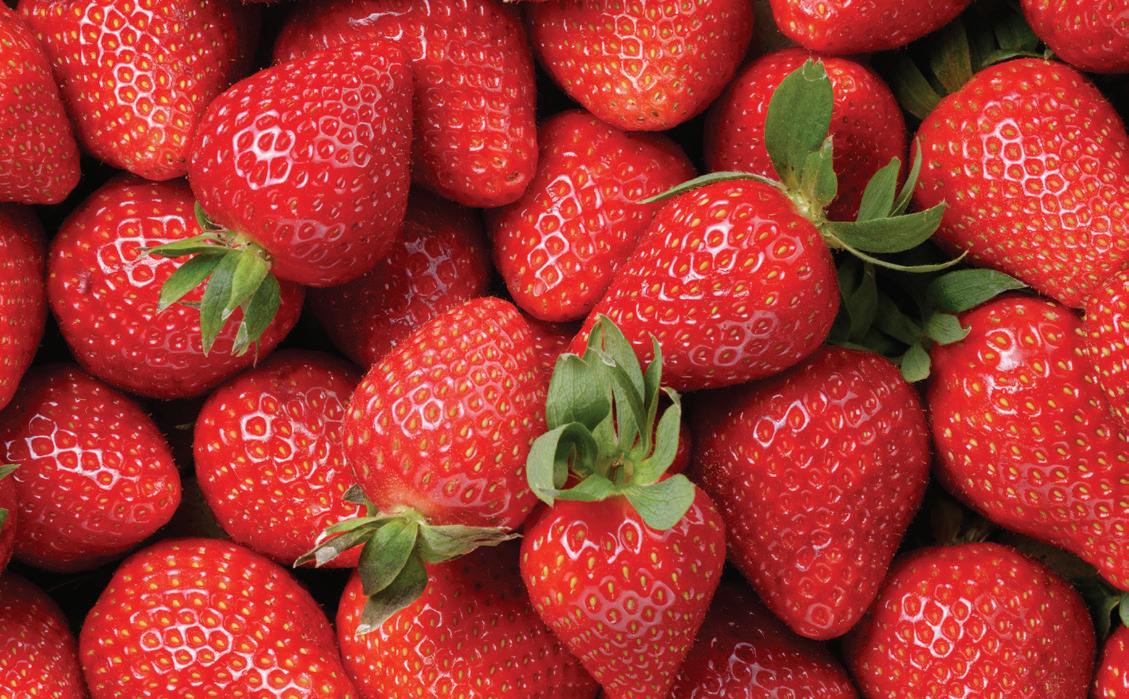
3 minute read
Collagen Chatter
BY JULIA DENKER
The collagen conversation began in earnest a few years ago, with easy-to-use powders arriving on the scene and lots of talk about collagen-enhancing foods (hello, bone broth!) The chatter continues—and the excitement grows—as a steady stream of evidence soundly backs the impressive health benefits of collagen.
What exactly is collagen? C ollagen is the most abundant, vital protein naturally produced by your body, accounting for about 30% of your body’s protein makeup. It’s like a glue that holds the body together, and is found in the connective tissue that maintains the structure and integrity of skin, muscle tissue, bones, and tendons. It’s also found in the hair, nails, and intestinal tissue. 90 percent of your sclera, the white part of your eye, is made up of collagen! Collagen is a critical messenger, sending out important signals to your cells to help combat inflammation and repair damage. It is rich in antioxidants, keeps blood pressure in check, and improves bone density. And collagen is a marvel at helping to seal a leaky gut.
JULIA DENKER has a passion for wellness, educational background in psychology and nutrition, and administrative leadership experience. She knows that we can all live and work smarter by making small but impactful lifestyle changes, including rethinking our food choices. Understanding bio-chemical individuality is key, and she guides clients on cueing into their bodies to craft a nourishment plan that works.
To add to its impressive resume, this powerful protein is responsible for skin’s elasticity and may be best known for keeping skin looking youthful and radiant. Good-bye, fine lines and wrinkles!
Collagen production slows with age You may start to notice signs of collagen deficiency as you get older—like sagging skin, aching joints, and gut issues. The list drones on with cracking fingernails, dull hair, and the fading of your onceyouthful glow.
While natural aging slows down the synthesis of collagen, other causes play a role too:
High-sugar diet sugars render collagen unusable in the body Nutrient deficiency especially a low intake of collagen-forming nutrients like vitamin C and copper Smoking causes early wrinkling and decreases wound-healing Excessive sun exposure UV radiation shuts down new collagen production Air pollution absorption through lungs and skin breaks down collagen
Nutrition to the rescue Good news: a healthy diet based on natural, whole foods will help your body get the necessary building blocks for collagen production!
Supplements with incredible results Collagen protein and gelatin powders are all the rage—and they work! These convenient, bioavailable powders are easily dissolved in cold or hot water, and can be added to smoothies, soups, stews, and salad dressings.
Are you ready for a healthy, youthful boost? Collagen can take years off your body, inside and out!
5
FOODS TO SUPPORT AND BOOST COLLAGEN
Bone Broth

one of the rare foods containing a bioavailable form of collagen that your body can use right away
Wild Salmon contains the trace mineral zinc, which helps activate collagen-producing proteins


Berries high in ellagic acid, which helps prevent collagen breakdown from UV damage, plus vitamin C, which links amino acids together for collagen production

Leafy Greens provides chlorophyll, which may increase the precursor to collagen in the skin

Avocado a good source of vitamin E, which helps prevent collagen from breaking down










